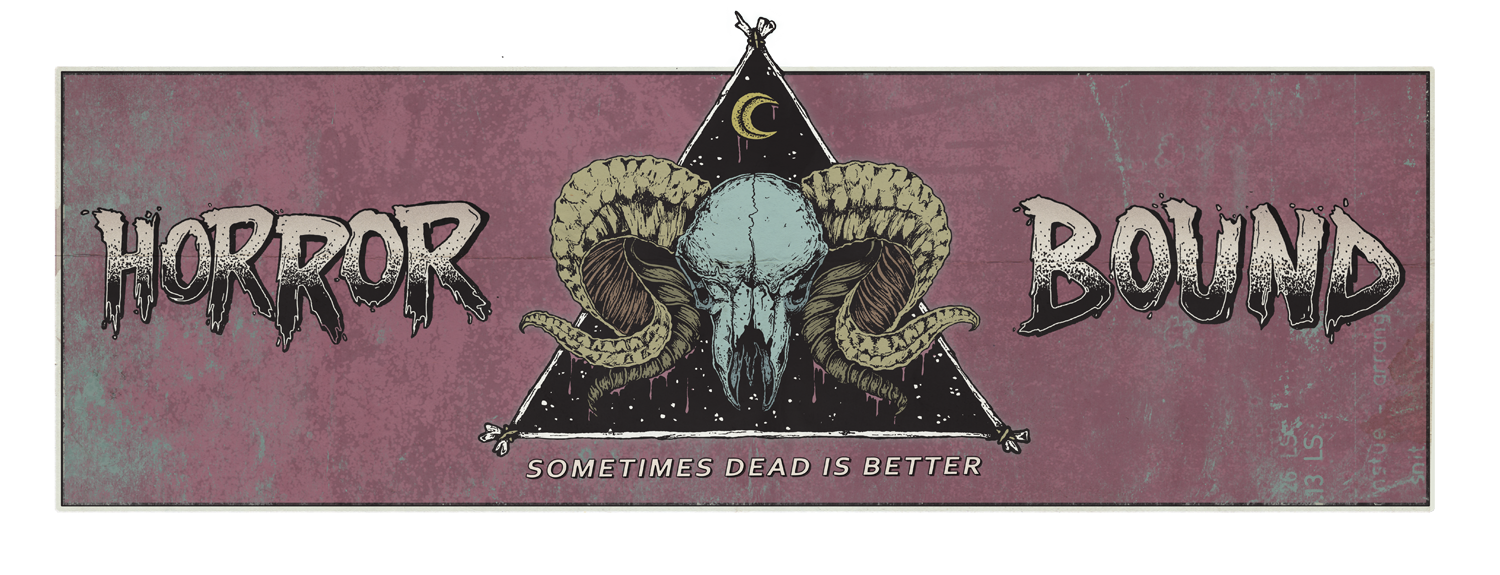The Neighbor - Examining Female Autonomy and Toxic Relationships in a Domestic Horror Setting!
Claire Vogel is a recently divorced mother of four living in the idyllic suburban neighborhood of Amber Falls. She is competent, professional, and utterly dedicated to providing her children with a pleasant and peaceful home environment. That is until a new neighbor moves in next door. Steel Nolan is young and handsome, and though she’s not quite sure she’s ready for a serious relationship, Claire quickly finds herself romantically involved and from here, things begin to take a turn for the worst. Dark figures begin to stalk through Claire’s home. Disembodied voices torment her and her children, and Claire’s eldest daughter, Annalen is not quite herself. In fact, she appears to be someone (or something) else entirely.
At first, Claire convinces herself that these strange happenings are manifestations of severe stress. But a series of tragic events soon strike Amber Falls, and it seems they can all be linked back to Claire’s new boyfriend whose past, we discover, is tainted by dark satanic rituals, tribal ceremonies, and a spate of women, both missing and murdered. Steel’s presence also begins to unearth memories from Claire’s childhood, memories she thought she’d buried a long, long time ago. As this section of Clarke’s novel unravels, we get some really disturbing scenes that touch upon childhood abuse and trauma. These scenes are not exploitative in any way but are dealt with in a remarkably sympathetic manner which by the end, contributes greatly to the overall growth and development of our main character.
Clarke’s use of the suburban setting is also used to maximum effect. The bland sameness and depressing materialism of this out-of-town neighborhood is perfectly captured by the dutiful housewives that people its ‘ultra-modern,’ high-ceilinged homes. Gen Painter, for example, pregnant and already scrambling to organize and control her two screaming kids, is continuously at the behest of her beer-guzzling husband, Trey, while Agnes Frankenson, slips into a catatonic state when her house is suddenly vacated of its male occupants. Yet, Clarke cleverly plays with the symbolic dichotomies that are typically attached to this passive, feminine landscape. When she finally figures out what’s going on in Amber Falls, Claire uproots the image of the apathetic and obedient homemaker. She actively pursues Steel, and mobilizes herself to do battle against the evil, inhuman forces she has unconsciously allowed to invade her life, her children, and her family home.
Clarke’s novel really ramps up in the closing chapters as domestic horror is expertly blended with the page-turning traits of the psychological thriller. An exorcist makes a brief appearance, and we also get a taste of Korean folklore when Claire’s elderly Korean neighbor steps in to give a hand. The folkloric elements of Clarke’s text are only fleetingly touched upon as the dokkaebi, the shapeshifting entities summoned to Amber Falls, are boiled down to hurried descriptions and definitions. We learn only that these sinister creatures are ‘attached to objects’ that have been ‘stained by human blood,’ but further research reveals a far more complex mythology with these creatures oftentimes performing as benevolent, harvest-giving spirits among fishing communities, and many rural and remote Korean villages. In saying this however, Clarke does effectively preserve the mythological link between the dokkaebi and the natural world. The eerie construction site next door provides a doorway to the past, violent storms conjure inexplicable paranormal activity, and Claire’s backyard eventually becomes a battleground for human souls as the story draws to a well-executed and satisfying close.
In a style similar to Grady Hendrix’s The Southern Book Club’s Guide to Slaying Vampires then, The Neighbor is a gripping, suspenseful read that not only delves deep into issues of spiritual faith and trauma, but examines the importance of female autonomy, and the ties that bind us to toxic and damaging relationships. Clarke’s approach to horror is the stuff of nightmares but there is also an unexpected tenderness at play as she brings to light the trials and tribulations of motherhood, and the extraordinary lengths to which a parent will go to protect their children. Overall, a thoroughly enjoyable contribution to the horror genre from a writer who obviously knows how to weave a truly excellent tale.
A word of thanks to the author, London Clarke, and the team over at NetGalley who kindly provided me with a free Kindle copy of The Neighbor in exchange from an open and honest review.
Don’t want to miss anything on the site? Sign up for our newsletter HERE
Want more spooky reads? Just search below.


